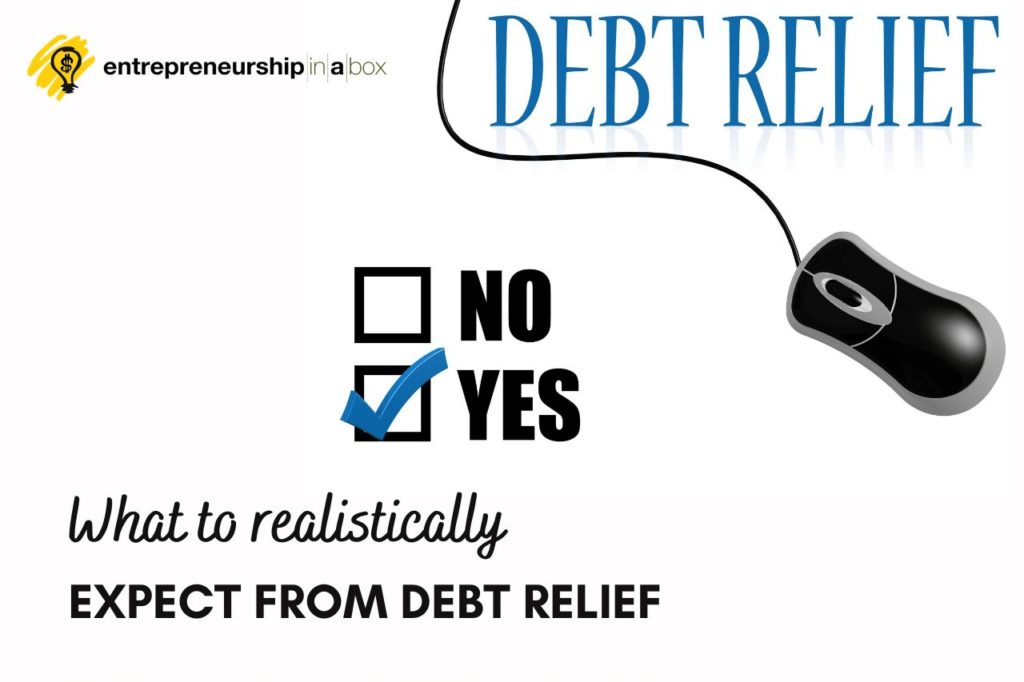Many people go straight to considering bankruptcy protection when credit concerns are seemingly too big to bear. However, there are alternatives to bankruptcy that do less lasting damage to your credit history and can help you get rid of most — sometimes even all — of your debt.
Collectively, these strategies are referred to as debt relief. Each of them has advantages and disadvantages, which we will examine below, as we discuss what to realistically expect from debt relief.
Debt Management
Generally instituted as part of a credit-counseling plan, debt management takes overpayment of your obligations on your behalf. You’ll deposit money with the credit counselor each month, which they will use to satisfy your debts. This essentially consolidates all of your debts into one.
It’s important to note, this — like the other debt-relief options reviewed here — only works with credit card debts, unsecured personal loans, and bills in collections. Still, in most cases a debt management program results in lower monthly payments, as the counselor will advocate on your behalf for interest rate reductions and fee waivers.
Debt Management Pitfalls
You’ll be required to close credit card accounts to prevent you from running them up again as you’re trying to pay them off. Missing a payment could get you booted from the program, so you’ll want to be sure you can pay as agreed. Getting new credit while you’re in the program will be difficult and your credit score will take a temporary hit.
Debt Settlement
This form of debt relief, when working with a reputable company, involves experts negotiating with your creditors on your behalf. However, unlike debt management, debt settlement could reduce the total amount that you owe.
Many creditors will accept these terms because they know people using this approach are likely doing so to avoid going into bankruptcy protection. Working with borrowers in this fashion positions the lender to get more money than they would from a bankruptcy judge.
You’ll deposit money into an FDIC-insured account from which the settlement payments will be disbursed to your creditors. Once they are paid, your debts are fully resolved.
Debt Settlement Pitfalls
It’s important to note that this is not a sure-fire remedy, as some creditors may refuse to negotiate. Further, because you might choose to stop paying your lenders directly, your credit score can take a dip, and you could find yourself getting collections calls until you inform them of your participation in a settlement program.
However, those horses probably galloped out of the corral a long time ago if you’re in need of a settlement plan. As with debt management programs, debt settlement primarily works for unsecured debt. One more thing, forgiven amounts could be reported to the IRS as “income,” in which case you’ll be taxed on them.
Be Careful to Avoid Scams
Sadly, there are people who make their way in the world taking advantage of others’ misfortunes and woes. Before you agree to a debt management or settlement program, do some careful research to be certain you’re working with reputable organizations that have a proven track record of helping people in your situation.
And yes, you absolutely can negotiate settlements on your own. Be apprised though, it’s an arduous task for which you’ll need a solid plan, patience, temerity, and a lot of time. Professionals in this field know how to cut through the firewalls to get straight to the people who can make the decisions — you’ll have to learn how to do that and it can be frustrating.
Still, knowing what to realistically expect from debt relief does help you decide which is the best approach and whether or not you should try it at all.





